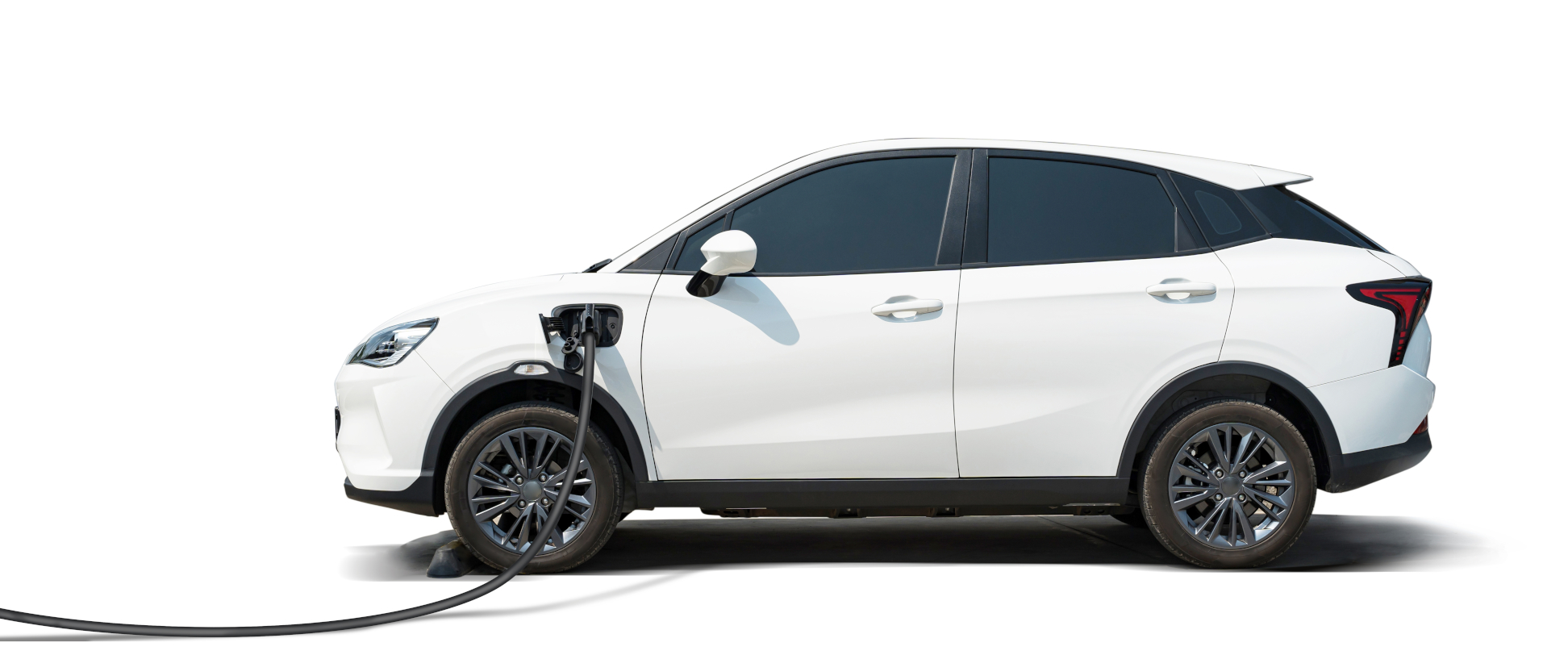Electric (EV) Car Rentals
Electric Car Rentals in Hawaii - on your Way with Clean Energy
Renting an electric vehicle (EV) in Hawaii can be a great way to explore the islands in a sustainable and eco-friendly manner. EVs produce zero emissions, making them a perfect choice for environmentally conscious travelers. Additionally, many rental car companies in Hawaii offer a wide selection of EV models, including compact cars, SUVs, and even luxury vehicles.
When renting an EV in Hawaii, there are a few things to keep in mind. First, it is important to plan ahead and reserve your vehicle in advance, especially during peak tourist season when demand is high. You will also need to make sure that your rental car comes equipped with a charging cable and that you are aware of the locations of charging stations on the islands.
Fortunately, Hawaii has an extensive network of charging stations, with many located at hotels, shopping centers, and other public areas. Some rental car companies may even provide discounted or free charging at certain locations, so it’s worth checking with your rental car provider.
Finally, it’s important to be aware of the rules and regulations around driving an EV in Hawaii. For example, some parking lots and garages may have specific designated parking spots or charging stations for EVs. Additionally, you should always be mindful of your vehicle’s range and plan your trips accordingly to avoid running out of battery.
Overall, renting an electric vehicle in Hawaii can be a fantastic way to enjoy all that the islands have to offer while minimizing your impact on the environment. With careful planning and attention to detail, you can have a smooth and enjoyable experience driving an EV in Hawaii.
Why choose an Electric Vehicle in Hawaii?
Renting an electric vehicle (EV) in Hawaii can offer several benefits:
Environmental Impact: EVs have significantly lower emissions compared to traditional gas-powered cars, which can help reduce your carbon footprint and contribute to a cleaner environment. Hawaii is known for its beautiful natural environment and adopting eco-friendly transportation methods can help preserve its beauty.
Cost Savings: Hawaii has some of the highest gas prices in the country, and renting an EV can help you save money on fuel costs. EVs are also typically cheaper to maintain, with fewer moving parts and less wear and tear on brakes and tires.
Convenience: Hawaii has a growing network of charging stations, making it easy to recharge an EV during your trip. Additionally, many rental car companies in Hawaii now offer EVs, so you can easily rent one and experience the convenience of driving an electric vehicle without having to own one.
Enhanced Experience: Driving an EV can provide a unique and enjoyable experience due to their quiet and smooth ride. Additionally, many EVs have advanced technology features that can enhance your driving experience, such as advanced safety features and multimedia systems.
Overall, renting an EV in Hawaii can provide an eco-friendly and cost-effective way to explore the island while enjoying the benefits of driving an electric vehicle.
Popular EV Rental Cars in Hawaii
An electric vehicle (EV) is a type of vehicle that is powered by an electric motor and battery pack instead of an internal combustion engine. This means that it runs on electricity rather than gasoline or diesel fuel.
The electric motor is the primary source of propulsion for the vehicle and is powered by the battery pack. The battery pack is made up of multiple individual batteries that are connected together to provide the necessary voltage and current to power the electric motor.
EVs come in different forms such as all-electric, plug-in hybrid electric, and hybrid electric vehicles. All-electric vehicles are powered entirely by electricity and have a range of around 100-300 miles on a single charge, depending on the model. Plug-in hybrid electric vehicles have a smaller battery and can run on gasoline or electricity, while hybrid electric vehicles have a smaller battery and rely mainly on gasoline but also use electricity to improve efficiency.
EVs are typically more efficient and environmentally friendly than traditional gasoline-powered vehicles because they produce zero emissions while driving. They also have lower operating costs since electricity is typically cheaper than gasoline, and they require less maintenance since they have fewer moving parts. However, they can be more expensive to purchase upfront, and charging infrastructure may not be as widely available as gasoline stations in some areas.
Models are constantly changing but currently these are the prevalent choices.
There are several popular EV rental types in Hawaii that are commonly rented by tourists and locals alike. Some of the most popular EV rental types in Hawaii include:
Tesla Model S: The Tesla Model S is a luxurious electric vehicle that offers a sleek and sporty design, along with impressive performance and features.
Nissan Leaf: The Nissan Leaf is a compact electric car that is perfect for navigating the narrow and winding roads of Hawaii’s cities and towns.
Chevrolet Bolt: The Chevrolet Bolt is a spacious and versatile electric car that offers ample cargo space and a comfortable ride.
BMW i3: The BMW i3 is a stylish and eco-friendly electric vehicle that offers a unique and futuristic design.
Hyundai Kona Electric: The Hyundai Kona Electric is a compact SUV that offers an impressive electric range, making it ideal for exploring Hawaii’s scenic routes.
These are just a few examples of popular EV rental types in Hawaii. Other options may include the Volkswagen ID.4, Ford Mustang Mach-E, and more.
HAWAII ELECTRIC VEHICLE RENTAL CAR FAQS
Can I rent an electric vehicle in Hawaii?
Yes, you can rent an electric vehicle in Hawaii. There are several rental companies that offer electric cars, and we have a category on our Discount Hawaii Car Rental website where you can search directly for electric and hybrid options.
What types of electric vehicles can I rent in Hawaii?
You can rent various types of electric vehicles in Hawaii, including electric cars like the Nissan Leaf, Tesla Model S, and Chevy Bolt, as well as electric SUVs like the Tesla Model X and Audi e-Tron.
What are the benefits of renting an electric vehicle in Hawaii?
Renting an electric vehicle in Hawaii offers several benefits, including lower fuel costs, reduced environmental impact, and access to charging stations throughout the state.
Are there charging stations available for electric vehicles in Hawaii?
Yes, there are charging stations available for electric vehicles throughout Hawaii, including in major cities like Honolulu, Maui, and Kona. Some hotels and resorts also offer charging stations for their guests.
Can I take an electric rental car on a road trip in Hawaii?
Yes, you can take an electric rental car on a road trip in Hawaii. However, you should plan your route carefully and make sure there are charging stations available along the way. Some rental companies may also have restrictions on where you can take their vehicles, so it's important to check their policies before you set out on your trip.
How much does it cost to rent an electric vehicle in Hawaii?
The cost to rent an electric vehicle in Hawaii varies depending on the rental company, the type of vehicle, and the length of your rental period. In general, electric vehicles may be slightly more expensive to rent than traditional gasoline-powered cars, but the cost savings on fuel may offset this difference.
What do I need to rent an electric vehicle in Hawaii?
To rent an electric vehicle in Hawaii, you will need a valid driver's license, a credit card in your name, and proof of insurance. Some rental companies may also require a minimum age for renters, and additional fees may apply for additional drivers or other optional services.
Are there any restrictions on driving electric vehicles in Hawaii?
There are no specific restrictions on driving electric vehicles in Hawaii. However, all drivers in Hawaii must follow the same traffic laws and regulations, including speed limits and other safety rules. It's also important to follow charging etiquette when using public charging stations to ensure that everyone has access to the charging infrastructure.



